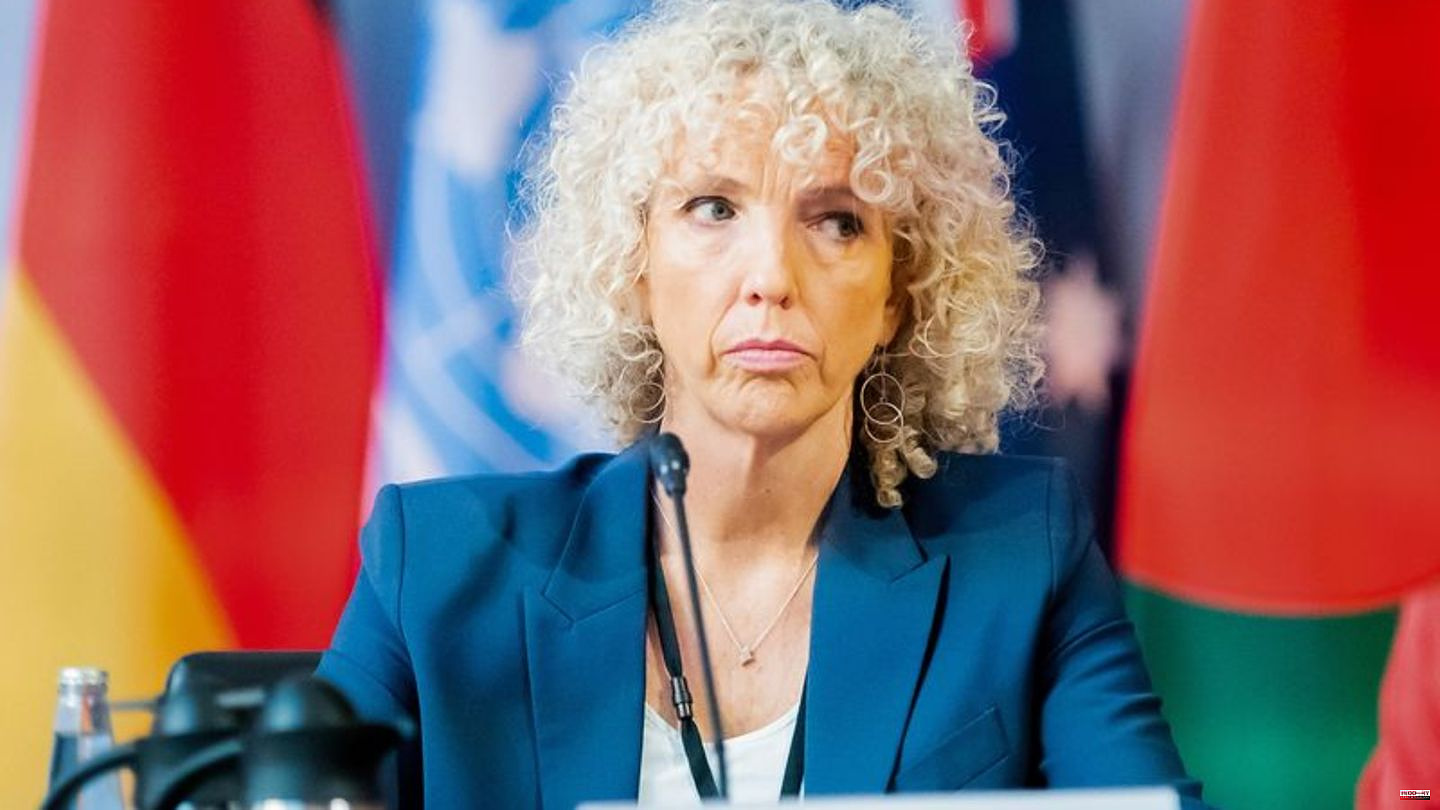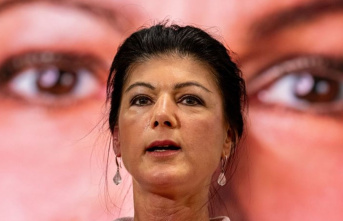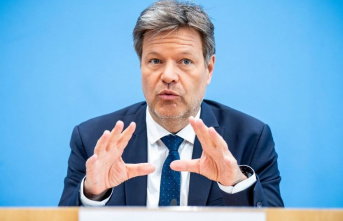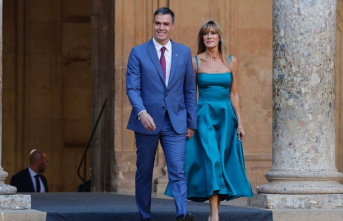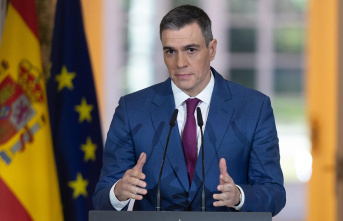She completed the climate conference in Glasgow about a year ago as head of Greenpeace, now she is Foreign Minister Annalena Baerbock's right-hand man in international climate protection: At the climate conference in Sharm el Sheikh, Egypt, Jennifer Morgan is pulling the strings in the German delegation. According to her own assessment, she remains true to her goals. "I'm fighting for every tenth of a degree less warming," Morgan told Der Spiegel. "Nothing changed about that."
Today's State Secretary Morgan brings with her a climate protection record from Germany, which she would have criticized in clear words in her previous job as an activist. Only two days before the start of the consultations in Egypt, the independent expert council dismissed the current German climate protection efforts as insufficient - even if the experts, who are trying to be sober, would never put it that way. Their conclusion: It is unlikely that Germany will still be able to achieve its goal of reducing greenhouse gas emissions by at least 65 percent by 2030 compared to 1990.
There is a problem with traffic measures
The climate protection expert Niklas Höhne from the New Climate Foundation think tank sees the Federal Republic, like all large countries, clearly deviating from the course of the Paris climate agreement, but still paints a mixed picture. "The expansion of renewable energies is being pushed forward in a concrete and vehement manner. But measures, particularly in transport, are not yet in sight, and households and industry would also have to make adjustments." It is particularly worrying that compromises are still being made to the detriment of the climate: more import terminals for liquid gas are now being built than are actually necessary. "These will stand in the way of climate change for decades to come."
Despite its own mediocre record, the federal government is traveling to Sharm el-Sheikh with the declared goal of "working internationally on an ambitious work program for further emission reductions by states," as deputy government spokesman Wolfgang Büchner explains. And although Germany, like other countries, is now using fossil fuels to close the short-term gap created by the collapse of Russian gas supplies, government sources say it should continue to expand renewable energies.
Poorer countries need help
It is said that progress will be made with financial support for those countries that are particularly suffering from the devastating consequences of climate-related events such as floods, droughts or storms. African countries in particular expect help here. "The climate crisis is an open bill for the industrialized countries, which they now have to settle," says Lisa Göldner from Greenpeace. Together with the group of 20 particularly endangered states, Development Minister Svenja Schulze (SPD) wants to launch the "Global Protective Shield Against Climate Risks" at the beginning of the second week of negotiations on November 14th, a new financial pool from which rapid aid will be provided in future to those suffering from climate-related disasters should flow.
As a country with experience of the energy transition, Germany is also pursuing partnerships with countries all over the world. There is such cooperation with South Africa when it comes to phasing out coal there. Rwanda wants to support the federal government in achieving its climate goals. Further partnerships could be announced in Sharm el Sheikh. "If they work, these climate partnerships are a key to bringing some momentum to the negotiations," says Höhne, who has "very subdued" expectations of the conference overall.
Understanding in the climate club?
And then there is the climate club proclaimed by Chancellor Olaf Scholz (SPD), in which states should agree on common goals and standards for more climate-friendly economies. According to the German government, there should be a formal decision by at least the G7 industrialized countries, ideally including other countries, before the end of the year.
Scholz himself will be in Sharm el Sheikh on Monday and Tuesday. Greenpeace representative Göldner finds words of praise for the Green Foreign Minister Baerbock, but accuses the chancellor of holding out the prospect of investing in new gas drilling when he travels abroad, for example off the coast of West Africa. "This is devastating for the climate and establishes a fossil development path in the supplying countries," she complains. It is much better to support the expansion of energy from wind and sun there. The chancellor must make it clear in Egypt that his current course is "a short-term emergency solution to balance energy imports from Russia."
The federal government must show internationally that the energy transition is irreversible, agrees Höhne. "Germany could openly admit that there are also difficulties with implementation in Germany. An honest handling of what has been achieved would do the political discussion good."

